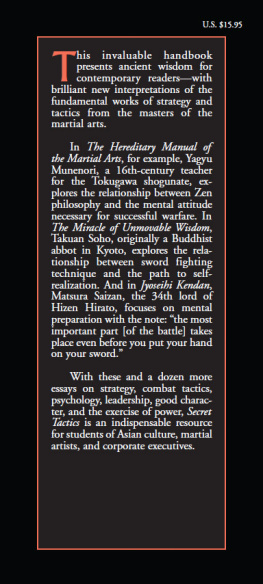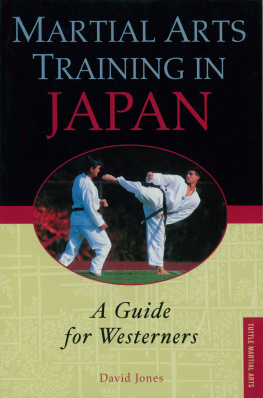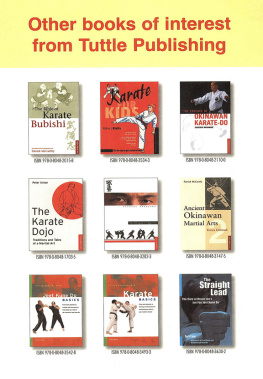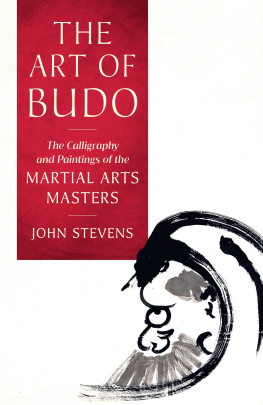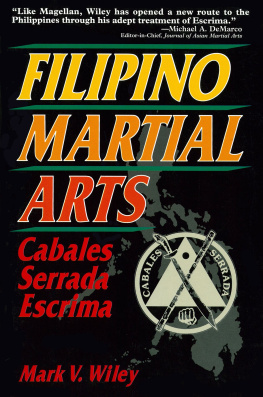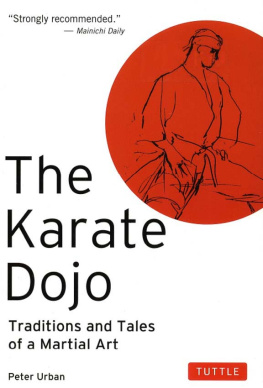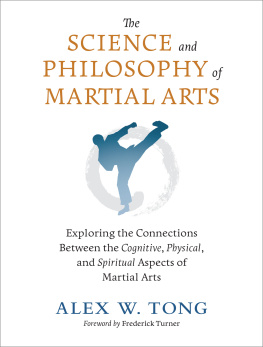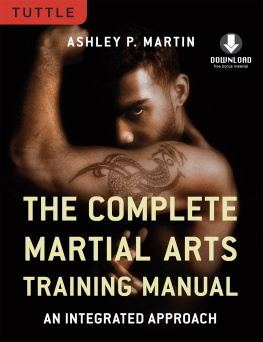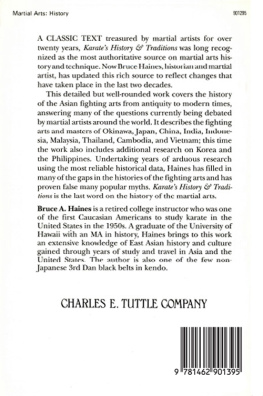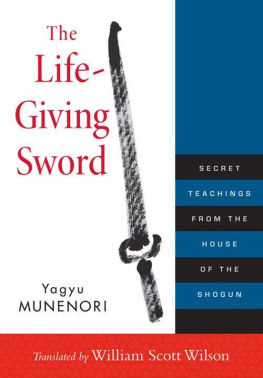ACKNOWLEDGMENTS
I dedicate these writings to my teacher, Professor Isao Obata, for his continued interest and encouragement.
I am especially grateful to the following individuals: Professor Isao Obata for his teachings and encouragement, my first teacher, Soke Tamotu Isamu, Mr. Keiichi Hasumi for his support and letter of recommendation.
Special thanks to the following individuals, presented in alphabetical order, who assisted to varying degrees in the generation and completion of this book: Tomomi Aozono, Miri Arai, Susan Mogari Catican, Charles J. Garzik, Yuka Cumming, Kyoji Kasao, Martin S. Katcoff, Arthur R. Kerr, II, Kanae Koh, Peter Marsh, Charles Meriwether, Hiroshi Minato, Sandy Rosner, Thomas B. Shea, Danny Silverio, Mr. and Mrs. Kazu Uji, Paget Wharton, Shinya Yamada, Tse-Hwan Yong.
The author also thanks the following for their help and inspiration over the years: John Almeida, James Ambrose, Jordan Berry, Ikuko Buruns, Cosmo Capobianco, Bill Charles, Debra and Stuart Chassen, Billy Conigliaro, David DAmore, Sam DeMarco, Ted Fowler, Takeshi Fukunaga, Harold Gold, Dov Goldstein, Robert Gomes, Noritoshi Gondai, Robert Harb, Joe Hizni, C. J. Hunt, Maria Jose, George Kasaro, Misako Kinoshita, Sifu Kasao Kyogi, Joe Laquidara, Matthew Levin, Malte Loos, Debra Martina, Susan and Nagao Matsuyama, Bob McNeil, Popsi Narasimhan, George Noone, Bob Perrin, Eymard Riel, Gene Shendoc, Vernon Simons, Sachi Suzuki, Jim Tatoski, Beverly Thomas, Roger Trimm, Masami Tsuruoka, Kaede Uji, Lloyd Webb, Dwayne Williams, Curtis Wong, Gayle Yoshimoto, Michael Zebrowski.
AFTERWORD
I hope you have noticed unifying principles and ideals expressed by the many masters from whom I have quoted. It is noteworthy that humankind throughout history has invoked many methods and pathways to enlightenment, yet there is only one essential truth that is sought after by all.
The same is apparent among the many styles of martial arts that have evolved over the centuries; they all seek the same place. Moreover, the so-called hard styles have softness within their core, and the soft styles invoke hardness within theirs, although such may not be apparent until one has practiced for a lifetime. Indeed, this can be likened to the many modern languagessome are harsh-sounding, some are soft, yet the same beautiful sentences, or the same hateful curses, can be expressed in all languages.
I hope that continued examination of the words of these masters will guide you in your progress towards enlightenment.
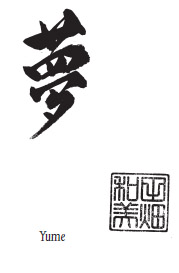
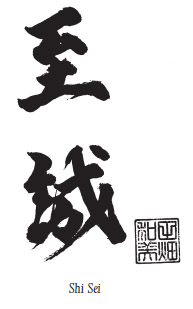
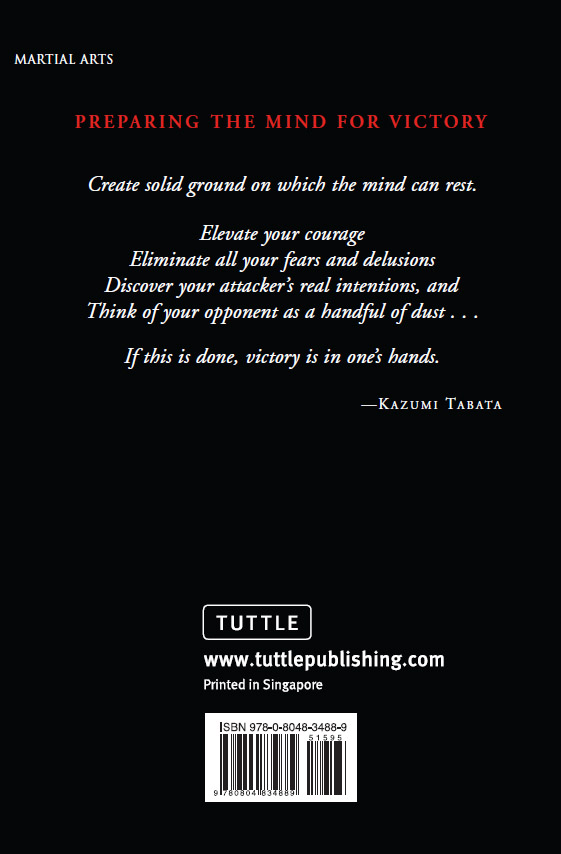

THE BOOK OF SEVEN MASTERS
Hear the sound of wind and water.
THE MOST IMPORTANT FACTOR in studying the martial arts is not merely to understand, but to transcend rationale and technique. Mastering both of these concepts is necessary and, like the two wheels of a cart, neither will be useful if one is missing.
In the martial arts, the spiritual aspect is the most important, and our forerunners, who were swordsmen of genius, have left legacies gathered from their personal encounters. Here I have collected works that I feel are most pertinent to the true understanding of the martial arts. These books were written between the fifteenth and sixteenth centuries, a time in Japanese history of warring states and attempts at unification. During this period, the art of war was not merely a sport or spiritual training; this was a time when ones existence depended on ones skill in destroying the enemy. These works, the records of men who lived by the sword in harsh times, contain valuable lessons for us today.
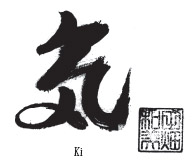

ENLIGHTENMENT
IN ORDER TO BE spiritually awakened one must train to understand the area of psychology; to discover the cause of phenomena which exists within the human mind. It is a way to pursue infinite truth. To seek infinite truth is to obtain the means to control ones life. It is training to realize what our ancestors have accomplished in their own spiritual awakening.
Personality can deeply affect ones training. Personality can be categorized into two typeseither thoughtful or intuitive. A thoughtful personality finds importance in practicality, practice, and observation. An intuitive personality finds importance in inspiration, imagination, and theory.
In order to be spiritually awakened, one must strike a balance between these two personality types.

LEADERSHIP
PEOPLE WITH OPEN and noble minds are the most effective teachers. Those who teach must not be bound by a single doctrine of existenceor an absolute value system. Regardless of their level of knowledge, their guidance cannot be fully effective unless they have a selfless mind.
Leaders should also be patient and kind, and teach fairly and with great mercy to all the people. They should have a great sense of responsibility, and their respectable behavior should give the people theyre teaching a sense of well-being and peace of mind.
It is far more difficult to overcome ones own falsehoods and selfdeception than to defeat millions of enemies. Unless you overcome these difficulties, however, you cannot preach morality. Self-centered thoughts and desires will eventually destroy your self.
If you are to lead, you must first lay your own foundation. Creating such a foundation will give others a sense of relief. They will then live rightly in the way that created such relief.
Similarly, a good partner relieves fatigue and arouses courage. Its a rare person who pays attention to their partners strong points, corrects his or her direction if its wrong, and furthers his or her abilities. But a wise person sees the joy in spending their life following and being dominated by a loved one. They can maintain a positive influence on the loved one, influencing him or her to make the right decisions at critical turning points in life. This is a good partner. In other words, a good partner is both a good leader and a good follower.
TEN LEVELS OF ENLIGHTENMENT
By Kok Yim Ci Yuen

ABOUT 900 YEARS AGO in Sheung Tak Fu, China, the Buddhist sage Kok Yim Ci Yuen was saddened that the world had fallen away from spiritual enlightenment, and had become mired in the physical world. This sage was the twelfth or thirteenth in succession from Shaka Buddha (the founder of Buddhism). Kok Yim Ci Yuen hoped to restore true happiness to people by helping them to develop their spiritual selves. He realized that all people are born with complete freedom from worldly trappings, but that their spiritual mind becomes clouded during life. Recognizing the tremendous difficulty that the average person has in embracing spiritual precepts, he presented the following beautiful and insightful story as a guide, to allow one to measure progress along ones way to spiritual enlightenment.

